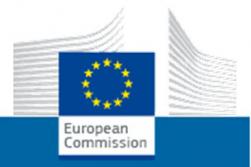A sample text widget
Etiam pulvinar consectetur dolor sed malesuada. Ut convallis
euismod dolor nec pretium. Nunc ut tristique massa.
Nam sodales mi vitae dolor ullamcorper et vulputate enim accumsan.
Morbi orci magna, tincidunt vitae molestie nec, molestie at mi. Nulla nulla lorem,
suscipit in posuere in, interdum non magna.
|
Thirteen months after the U.S. Federal Trade Commission settled its antitrust investigation of Google Inc. by flatly declining to regulate the company’s search practices, the European Union is poised to do just that. This development highlights a serious rift between the two most influential competition authorities worldwide — and their very different value systems.

It has been true for years that on important Internet policy issues such as privacy, defamation, censorship and government surveillance, the 30-member EU has adopted principles far more intrusive for businesses, and likewise more protective of consumers, than in the U.S. Similarly, ever since a proposed General Electric-Honeywell merger was scuttled by the European Commission’s competition directorate in 2000, there have been a few highly visible cases in which the EU’s view of antitrust as a basis for protection of smaller entities in the marketplace has produced sharply different results.
So it is hardly surprising that EU Competition Commissioner Joaquin Almunia announced recently that several expanded concessions offered by Google to resolve his concerns about the fairness of the company’s search practices — which would fundamentally alter search by requiring Google to display links to rival search competitors on results pages served to its own search users — had finally borne fruit. The most basic competition issue asserted by the European authorities was that Google gives preference to its own services, like travel search, by placing those “specialised” (in European spelling) results above “organic” or natural search results. Google proposes to label these specialized results as paid placements and to add prominent links to rivals alongside. Despite vocal complaints by Google’s so-called vertical competitors that these substantial changes in search display — putting Expedia travel link results, for instance, on the same level of visibility as Google’s own sponsored links — still do not meet their needs, the fact that the EU is using its power to force serious search engine revisions on Google represents a watershed moment illustrating how far apart the two systems were and can still be at times.

There are three principal ways in which the inconsistent U.S. and EU Google settlements epitomize this continuing war of the worlds over antitrust enforcement:
- Is Google a Bottleneck “Gateway”? Almunia’s investigation was overtly premised on the concept that Google’s 90 percent share of Web searches in Europe (compared to some 70 percent in the U.S.), equals monopoly power as a gateway essential to success for Internet businesses. American jurisprudence, in contrast, has largely abandoned the bottleneck classification and its corollary, the “essential facilities” doctrine. Moreover, U.S. competition enforcers and courts distinguish between consumer preferences (which are changeable) and a dominant’s firm’s economic power (which can persist for long only when sheltered by entry barriers) in a way that contradicts the EU premise. As one federal court explained in January, the “ability to act as a ‘gatekeeper’ distinguishes broadband providers from other participants in the Internet marketplace — including prominent and potentially powerful edge providers such as Google and Apple — who have no similar control over access to the Internet for their subscribers and for anyone wishing to reach those subscribers.”
- Is Consumer Deception an Antitrust Issue? The EU has been focused, in large part, on the fact that when redesigning its search result displays, Google may have confused Internet users by not specifically indicating that some results are now based not on generic search algorithms, but instead a decision to integrate links to Google’s own services on results pages. Almunia believes that the potential for misleading consumers justifies a competition remedy, saying that Google must “signal what are the relevant options, alternative options, in the way they present the results.” In contrast, American antitrust law is clear that fraud, deceptive advertising and other commercial bad acts alone are not of competitive concern. Consumer protection remains important in the U.S., but our legal principles separate regulation of consumer issues from the competition-preservation function of antitrust policy.
- Should Antitrust Protect Traffic to Google’s Competitors? By far the biggest difference in the EU approach to competition enforcement is the historical European preference for domestic firms in established industries. In France, for instance, Internet publishers pay a tax that subsidizes newspapers and printed mapmakers, something anathema to the American idea of a free market. Where Google is concerned, the question becomes whether, as an important source of Web traffic for competing specialized search services, its practices should be regulated in order to guarantee hits to rival sites. The EU has been somewhat schizophrenic, at first condemning what it termed “diversion of traffic” to Google itself and characterizing its mission as to “guarantee that search results have the highest possible quality,” then later stressing that its “aim is not to artificially send traffic to sites that compete with Google.” The bottom line, however, is that by seeking to stop Google from “diverting” Internet search users from the complaining sites, the EU is in part attempting to dictate the results of competition, something American antitrust leaves to the marketplace.
Yes, these differences can sometimes be overstated. Both the EU and American antitrust agencies mutually believe that competitive markets produce the best outcomes and that, absent abuse by firms with monopoly power, the government should not try to pick winners and losers. The contrasting values typically appear only in hard cases, where the facts are ambiguous or the competitive consequences difficult to predict. Different enforcement decisions in Europe and the U.S. are uncommon, but when they do occur, are important as more than isolated instances.
There is a ray of light in all of this, one conclusion on which both Almunia and Jon Leibowitz, the former FTC Chairman who closed the U.S. government’s investigation of Google last year, agree wholeheartedly. Neither the EU nor the FTC accepts the premise of complaining search competitors that antitrust law embraces a concept they term “search neutrality,” namely that search providers must treat all queries and results under the same objective standard. The FTC said it had neither the desire nor institutional expertise to “regulate the intricacies of Google’s search engine algorithm.” The EU likewise concluded that its Google remedies should address “the way they present their own services” rather than “discussing the algorithm” used for Internet search.
This is one way, unlike the Martian invaders in the H.G. Wells novel, that the shared histories of America and Europe give the developed world a sustainable advantage in economic performance. On both the continent and in the New World, new business ideas succeed if they are better designed to meet the needs of consumers. With rare exceptions, we do not intervene in the marketplace to achieve government-desired competition results or to exclude some firms for political or social reasons. That is particularly key to the different Google search remedy approaches. Since everyone admits Google got to its present position by building a better search engine, the consequences of allowing competition policy to morph into an artificial tool of technology regulation by way of search neutrality are enforcement quicksand for the government, regardless of which “side of the pond” it sits.
In the ongoing saga of governmental antitrust investigations of Google, recent weeks have witnessed a new level of rhetoric and disingenuous use of the regulatory process to handicap, rather than promote, competition and innovation. The current case in point relates once again to search neutrality, but this time complaining rivals remarkably object to getting exactly what they’ve asked for over many years.
Just a little less than four months after the U.S. Federal Trade Commission (FTC) closed its monopolization investigation into alleged “search bias” by Google, the European Commission (EC) — the pan-European competition authority for the 30-nation European Economic Area (EEA) — released a set of proposed commitments by Google designed to resolve the competition “concerns” preliminarily outlined by EC competition chief Joaquin Almunia. That set off a firestorm of criticism from so-called “vertical” competitors (e.g., travel booking or consumer shopping sites), led by UK firm Foundem, a plaintiff against Google in its own antitrust lawsuit in England.
 The first and most basic competition concern asserted by the EC was that Google gives preference to its own services, like travel search, by placing those “specialised” (in European spelling) search results above “organic” or “natural” search results. Google proposes to label these specialized results as paid placements and to add equally prominent links to vertical rivals alongside. Under the commitments Google would auction links for commercial services to qualifying rivals using a lengthy set of rules for transparent and equal treatment. It is precisely the paid link insertion remedy that Google critic and long-time legal adversary Gary Reback called for at an April 2013 FairSearch.org event in Washington, DC. The first and most basic competition concern asserted by the EC was that Google gives preference to its own services, like travel search, by placing those “specialised” (in European spelling) search results above “organic” or “natural” search results. Google proposes to label these specialized results as paid placements and to add equally prominent links to vertical rivals alongside. Under the commitments Google would auction links for commercial services to qualifying rivals using a lengthy set of rules for transparent and equal treatment. It is precisely the paid link insertion remedy that Google critic and long-time legal adversary Gary Reback called for at an April 2013 FairSearch.org event in Washington, DC.
Foundem opposes that solution. But making heads or tails of Foundem’s rather incoherent response to Google’s EC settlement proposal is difficult. In part that’s because the response is a hodge-podge of discredited claims, incorrect assumptions and fuzzy reasoning. In part it’s because Foundem’s use of over-the-top language and Chicken Little predictions makes it impossible to decipher facts and reality from mere opinions and sour grapes. For instance:
If the Commission were to adopt Google’s proposals in anything like their present form, it would be unwittingly playing into Google’s hands — aiding and abetting Google in its long running strategy to transition commercial searches away from its natural search results and into its paid advertisements. Under these proposals, Google would not only continue to profit from the traffic it hijacks from rivals, but it would now also profit from the traffic it sends to rivals…. Any vertical search companies that survive the transition to such a radically altered and unfavourable marketplace would be left eking out a living on the slimmest of margins from the scraps left over from the traffic, and now revenues, that Google would be diverting to its own services.
If one separates the adjectives from Foundem’s substantive criticisms, there are four principal contentions it makes.
1. “Universal Search” labeling does not fix organic search manipulation. Foundem says the EC proposal addresses only the “preference” of Google’s own links in a prominent area of its redesigned Universal Search results pages, not the use of search algorithms allegedly to demote links to vertical rivals. “Instead, with a flourish of misdirection, they focus exclusively on its [sic] Universal Search inserts.” Because the commitments “ignore Google’s natural search results, they are misdirected in their application and fall far short of their target.”
2. Paid Rival Links would benefit Google financially. Foundem complains that Google’s proposal to insert paid links to vertical rivals for commercial searches will allow it to “monetise” (again in European spelling) rivals’ Web traffic. The proposal, Foundem claims, would allow Google to become “the main beneficiary of its rivals’ vertical search services as well as its own,” which would “extend Google’s existing monopoly powers and could eventually leave it in sole possession of the efficient, low-overhead, business model that has characterised and fuelled the internet revolution.”
3. Google should be prohibited from applying site quality algorithms. Foundem asserts that the use of website quality metrics designed to weed out malware, spam and search-manipulated sites that lack content is inherently anticompetitive, but that Google’s corresponding commitment to include all vertical rivals absent “some clearly defined Harmful Practices (such as illegal content and consumer deception)” or with “prior individual approval from the [European] Commission” is inadequate.
4. The Google commitments do not extend to non-search services. Foundem complains that ”vertical search was simply the natural first target for Google. Google can (and will, if it isn’t stopped) extend the same abusive practices into other sectors, including e-commerce, auctions, and social networks.” It opposes the proposed commitments because they do not cover these other Internet-based services.
Each of these criticisms is misplaced, but none more so than the claim that the Google proposal should be rejected because it somehow misses the big problem in search. The EC’s principal competition concern was that Google gave undue preference to its own vertical services with the invention of Universal Search. Therefore, inserting links to rivals in that same “preferential,” prominently outlined space above organic search results provides obvious parity between Google’s shopping service, for instance, and Foundem’s consumer electronics listings. The second concern was that Universal Search deceives users into thinking results are something other than promotion of Google’s own commercial services because the lack of a clear distinction between a promoted link and normal search results “left some consumers less able to make an informed choice.” Hence, as I’ve addressed in detail before, a label remedy is precisely the right solution to what is, at heart, a contention of misleading trade practices.
The FTC notably concluded that Google’s switch to Universal Search was a bona fide search innovation that benefited consumers. Mr. Almunia has made essentially the same concession. To the extent Foundem believes the practice is inherently anticompetitive and should be banned, as it appears, its critique is inapposite to an evaluation of the effectiveness of Google’s proposed EC commitments. Even in Europe, competition authorities do not outlaw products developed by firms with market power, and EC competition law, like that in the US, is strongly disinclined to sanction an antitrust case based on allegations of “anticompetitive product design.”
The reason for this restraint is simple: competition officials and courts are not engineers or businessmen and thus have no objective basis on which to assess whether product designs are “good” or not. That is a decision left to the marketplace, with consumers literally voting with their clicks and wallets. Indeed, such reserve is essential in technology markets, where product innovation occurs at the speed of light in and in which user interface and consumer experience are so subtle and competitively important. It is the reason former FTC chairman Jon Leibowitz — on behalf of a unanimous, politically diverse five-commissioner agency — rejected calls that antitrust should be used to “regulate the intricacies of Google’s search algorithms.” Ditto Mr. Almunia, who likewise told the Financial Times back in January that his concern is “the way they present their own services” and that he was “not discussing the algorithm” used for Internet search.
Foundem’s other critiques are nonsensical. Including Paid Rival Links alongside Google’s own universal shopping and commercial links (themselves paid) requires someone to set a fair price. That is something bureaucrats and antitrust agencies again do not do well, if at all, but an auction does perfectly. There is plainly no room to include links for every commercial search site on every Google search results page, so an auction system allocates that scarce space to businesses based on their own financial calculus of the benefit of preferential placement. That’s not monetizing rivals’ traffic and does not require Foundem or any other Google competitor to participate. If these Paid Rival Links are as worthless as Foundem implies, then its prediction of Google using them as a way to usurp competitors’ revenues is especially silly, because the auction prices will be negligible. Indeed, to suggest that paid placement is for some reason invalid as a competitive search service represents the height of hubris for Foundem, whose business model is to sell all search results. If paid placement is OK for Foundem it is equally permissible for any other search firm, small or big or anywhere in between.
It’s hard to take seriously a company which contends that site quality algorithms are invalid, when we all know the entire SEO, pornography and content piracy industries try their damnedest to game search results and avoid content filters established by responsible search engines like Google. Foundem never explains why the objective criteria Google has committed to apply do not resolve its allegation that rival links were targeted for demotion unfairly. While I personally disagree with the need or justification for any such remedy, the fact is that Google’s proposed settlement directly addresses organic link results by precluding exactly the type of targeted “link demotion” that FairSearch.org, Mr. Reback and Foundem itself have long alleged Google engages in as a matter of ordinary course.
Lastly, consider for a brief moment Foundem’s odd criticism that Google has not offered proposals for “other sectors” like auctions and social networks. Foundem itself does not operate in those markets, which are obviously not Internet search. With the rather spectacular failure to date of Google+ to challenge Facebook and Twitter, or any Google service to take on eBay, no one has even claimed Google has any chance of monopolizing these very different markets. When and if there are problems of Google accumulating market power in new services against entrenched Web firms — an eventuality that is all but inconceivable today — antitrust authorities can intervene. To do so in a case about allegations of Web search dominance and abuse is unseemly by any standard, European or American.
Note: Originally prepared for and reposted with permission of the Disruptive Competition Project.


Just a couple of weeks ago I put together a brief synopsis of the now-closed Federal Trade Commission (FTC) investigation of Google, Inc. for alleged monopolization, titled Deconstructing the FTC’s Google Investigation. To make the article fit within the space constraints of the American Bar Association’s Monopoly Matters newsletter, though, a few thoughts had to be edited out. One that is particularly appropriate now is the cogent observation by former FTC Chairman Jon Leibowitz that rivals frequently operate under the “mistaken belief” that criticizing the agency “will influence the outcome in other jurisdictions.”
Last Wednesday’s PR event by the FairSearch.org coalition made that evident in spades. We’ve discussed before that use of competition law to handicap other firms, rather than removing barriers to market competition, is unabashed protectionism, which can (perhaps should) backfire. The FairSearch companies continue to insist, as the coalition’s U.S. lawyer summarized, that the FTC “did not take on the issue of search bias.” That’s hogwash. The Commission found no evidence of harm to competition and, more importantly, rejected the FairSearch call for “regulating the intricacies of Google’s search engine algorithm.” And yet like Chicken Little, these companies continue to claim the sky is falling.
Leave aside for a moment that the FairSearch media event featured four legal presenters, all of whom are supporters of its lobbying positions, instead of a “fair and balanced” debate. And forget for a moment that the European Union’s parallel investigation (wrapped in much of the secrecy typical of an EU approach to competition regulation) is some 42 months old, with a possible end just recently within sight. What is most remarkable about the denial exhibited at the FairSearch media event is its blatant internal inconsistency. Three examples of the group’s positions make this abundantly clear.
- “Deception” Warrants a Disclosure Remedy. Former Assistant Attorney General Tom Barnett testified in 2011, for a founding FairSearch member, that Google acted anticompetitively because its “display of search results is deceptive to users.” FairSearch’s European counsel said the same thing recently, namely that Google “uses deceptive conduct to lockout competition in mobile.” But as I’ve noted previously, deception of this sort raises consumer protection issues, not legitimate antitrust concerns. Remarkably, Gary Reback scoffed at the reported suggestion by the EU’s Joaquin Almunia that a labeling remedy for Google’s revamped universal search results is appropriate, saying it’s “like telling McDonald’s customers they should eat healthy…it will not make a difference.” To the contrary, if deception is the problem then full disclosure has always been the answer. Where consumers are free to choose other search engines, and are told explicitly that some search results point to Google’s own “vertical” sites, whether they opt not to act is something about which competition authorities should be indifferent. Antitrust, at least in the United States, is not a Mayor Bloomberg-type vehicle for social engineering.
- Price Regulation Is Not the Job of Competition Enforcers. Ironically, the newest FairSearch approach raises the even more subtle antitrust issue of whether Google can be required to sell sponsored link ads to vertical rivals like Kayak and Yelp.
 Known in competition parlance as a “unilateral refusal to deal,” the idea is that the remedy for Google’s preferential placement of its own services in organic search results should be a mandatory sale of ad space to purportedly “demoted” competitors. That’s hard to swallow under American antitrust doctrine, which makes unilateral refusal cases very difficult to win, described by the Supreme Court as the “outer limits” of the Sherman Act. More importantly, as Reback put it, the obligation would be to sell ad space on “reasonable and nondiscriminatory terms,” which in turn means that an enforcement agency or court would have to decide whether the ad rates charged by Google were “reasonable.” So while disclaiming an intention to create a federal search regulatory commission, the FairSearch companies are in fact doing just that. Even in price fixing cases, antitrust agencies and courts do not decide what a fair or reasonable price is, because they lack the ability to do so and because, after all, that’s the function of competition. Known in competition parlance as a “unilateral refusal to deal,” the idea is that the remedy for Google’s preferential placement of its own services in organic search results should be a mandatory sale of ad space to purportedly “demoted” competitors. That’s hard to swallow under American antitrust doctrine, which makes unilateral refusal cases very difficult to win, described by the Supreme Court as the “outer limits” of the Sherman Act. More importantly, as Reback put it, the obligation would be to sell ad space on “reasonable and nondiscriminatory terms,” which in turn means that an enforcement agency or court would have to decide whether the ad rates charged by Google were “reasonable.” So while disclaiming an intention to create a federal search regulatory commission, the FairSearch companies are in fact doing just that. Even in price fixing cases, antitrust agencies and courts do not decide what a fair or reasonable price is, because they lack the ability to do so and because, after all, that’s the function of competition.
- Mobile Really Is Different. The FairSearch event also included a competition lawyer for Nokia (Ms. Jenni Lukander), who contended that Google acted irrationally by giving away its Android mobile operating system, claiming the OS is merely a “Trojan Horse to monetize mobile markets.” So what? Providing free or open source software while profiting from ancillary products or services is a valid business strategy, pioneered by Netscape nearly 20 years ago and exemplified by Java, MySQL and numerous “freemium” sites such as Dropbox, Evernote, etc., available today. (This complaint is even stranger given that Nokia open-sourced its own mobile operating system in 2010, presumably for rational business reasons.) The FairSearch panelists argue that mobile is different because Google is supposedly “dominant” in mobile search, citing a market share of some 97%. That is both factually wrong and immaterial. Mobile is indeed different because Web search is rapidly being replaced by voice-search and app-based queries, which make any Google advantage in desktop search engines irrelevant. When Yelp gets nearby 50% of its traffic from its own smartphone app, it is impossible to seriously maintain that Google’s search engine is “diverting traffic” in the mobile space from rivals. Moreover, what the newest FairSearch complaint in Europe contends is that Google’s control over the Android OS limits OEM freedom by requiring some Google app icons (like the Google Play app store) to be displayed. As Dan Rowinski observed in readwrite mobile, that’s incorrect — “all kinds of stupid,” in his words. See Amazon’s locked-down Kindle, which runs Android without a single Google icon or app, as just one example. Most significantly, none of these vertical restrictions, even if they have the effect Nokia suggests, has any impact at all on search or search advertising in the mobile market. It is a fair conclusion that by venturing into the mobile OS arena, FairSearch is not looking for search fairness as much as to handicap and distract a rival with the threat of government regulation.
Here is how the New York Times summarized the new Android complaint by FairSearch.
The complaint was filed by Fairsearch Europe, a group of Google’s competitors, including the mobile phone maker Nokia and the software titan Microsoft, and by other companies, like Oracle. It accuses Google of using the Android software “as a deceptive way to build advantages for key Google apps in 70 percent of the smartphones shipped today,” said Thomas Vinje, the lead lawyer for Fairsearch Europe, referring to Android’s share of the smartphone market.
Any believer in the merits of competitive market economies must object to such misuse of competition laws. They should also, I suggest, react the same way to the most recent indication from Mr. Almunia that the EU’s purpose in investigating Google is to “guarantee that search results have the highest possible quality.” Nothing distills the difference between the European and American approaches to competition law as much as that revealing admission. Product quality is a function of the marketplace, not the government. And if regulation of search quality is deemed a subject warranting governmental regulation (which this author hopes never occurs), the one principle on which every objective observer would agree is that a regulatory scheme should apply uniformly to all firms in the market. That is plainly not what FairSearch strives to achieve, and thus why its proposals should be rejected by enforcement authorities worldwide.
Note: Originally prepared for and reposted with permission of the Disruptive Competition Project.

|
|






